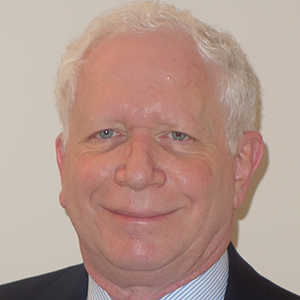
14 Sep An Interview with Peter Ganz, UCSF

Dr. Peter Ganz is the Chief of Cardiology at the Zuckerberg San Francisco General Hospital and Maurice Eliaser Distinguished Professor at UCSF. Dr. Ganz has been a pioneer in translational cardiovascular research. He was the first to publish on vascular endothelial function in health and its dysfunction in atherosclerosis in humans (N Engl J Med 1986; 315:1046-1051). Currently, Dr. Ganz is making important discoveries in the field of proteomics, using modified aptamers as binding reagents to quantify proteins in blood (JAMA 2016;315:2532-2541). Read his full bio.
Interview with Peter Ganz, UCSF
Q: Cardiovascular disease, listed as the underlying cause of death, accounts for about 1 in 3 deaths in the US with coronary heart disease being the leading cause (43.8%), followed by stroke (16.8%), and heart failure (9.0%). To address this issue, it is necessary to understand the totality of cardiovascular disease at a granular and integrative molecular level. Where is the field today with integrating various data points that lend itself towards a more exacting (patho)phenotype, one that is amenable to precision medicine?
A: Many new tools are being introduced in cardiology s to achieve a personalized approach to diagnosing and managing cardiovascular disease. For example, genetic studies have uncovered mutations that have been successfully exploited by pharmaceutical industry to introduce new, highly effective treatments (e.g. PCSK9 inhibitors for lipid lowering). Cardiac amyloidosis now has targeted treatments, improving the lives of afflicted patients. Somatic genetic mutations have been discovered in hematopoietic cells that are an important risk factor for coronary heart disease (knowns as clonal hematopoiesis of indeterminate potential, or CHIP). Proteomics is able to identify cardiovascular risk better than traditional risk factors and is able to predict the benefits or harms of medical therapies. Remote sensors are being used to screen for cardiovascular disease on a broad scale. Non-invasive cardiovascular imaging is replacing more invasive tests (i.e. cardiac catheterization) and interpretation of imaging studies can be automated through machine learning approaches. This is an exciting time where cardiology is finally catching up to oncology in personalizing the care of its patients!
Q: What are you expecting PMWC attendees will walk away with from the PMWC 2020 Silicon Valley conference? Why is of relevance for the attendees to see your talk and attend the Cardiovascular Disease sessions? What are some of the call to actions that we as a community should focus on?
A: The attendees of the cardiovascular session will learn about novel approaches to assessing the risk of heart disease, through genetic and proteomic factors; new approaches to cardiovascular imaging; targeted therapies for cardiac amyloidosis; use of remote sensors to diagnose cardiovascular disease broadly in the population; and solving the reimbursement challenges that come with new diagnostic tools and therapies.
The health care community will need to focus on thoughtful implementation of new diagnostic modalities. As much of cardiovascular care and reimbursement is now based on practice guidelines, convincing data will need to be accumulated to qualify novel tests and treatments into guidelines.






